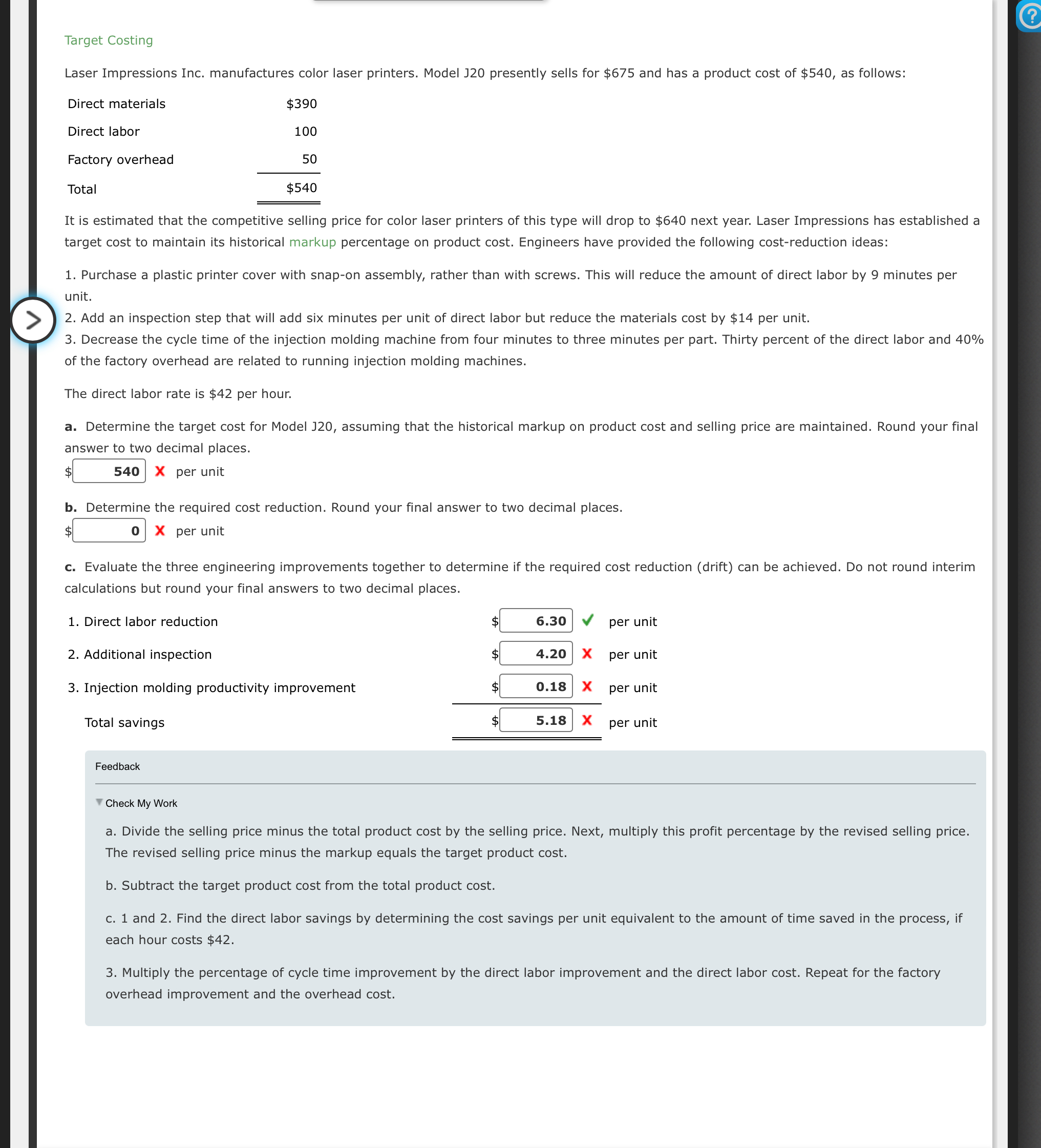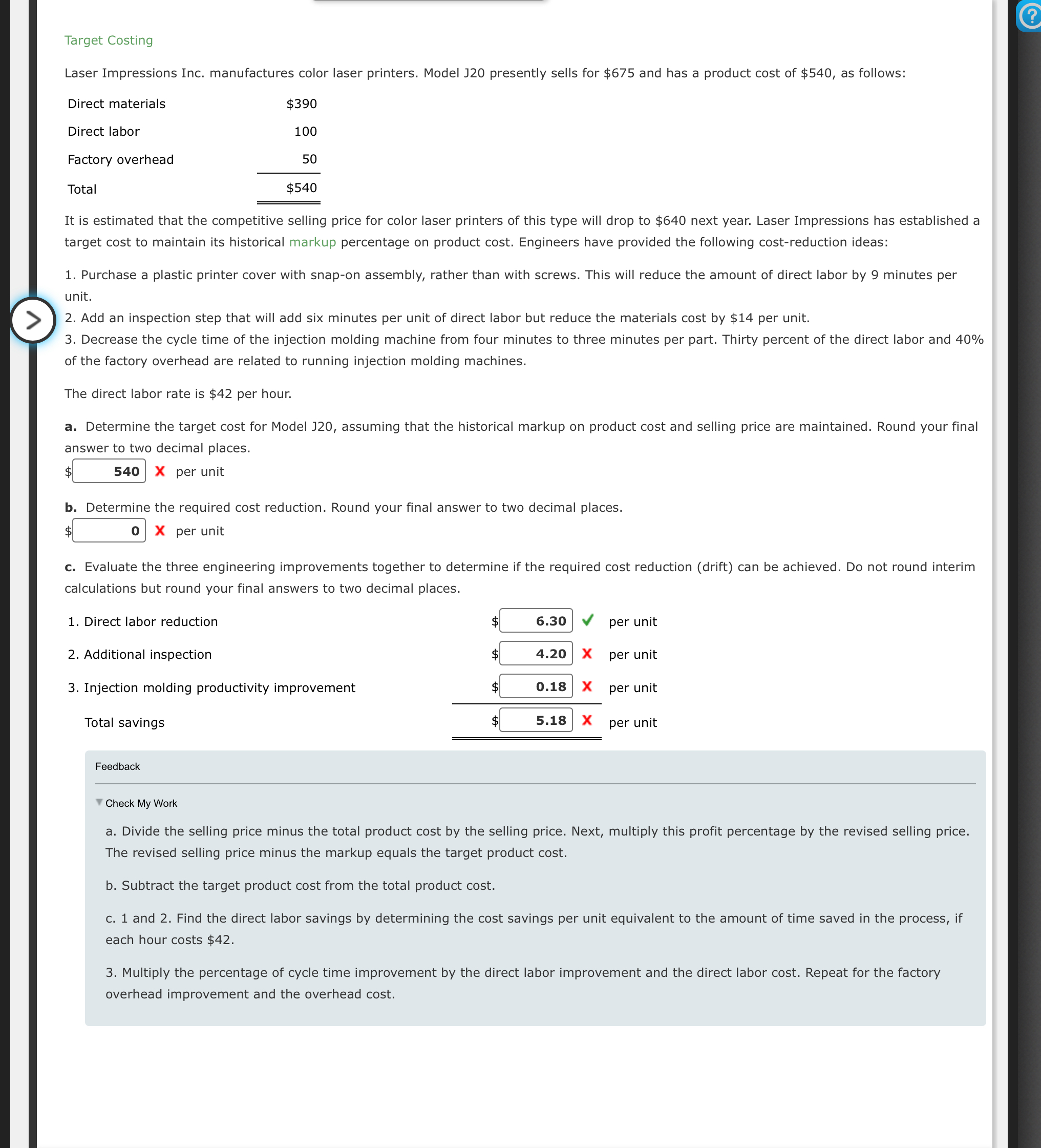Answered step by step
Verified Expert Solution
Question
1 Approved Answer
Please help me out by solving this exact problem. Target Costing Laser Impressions Inc. manufactures color laser printers. Model J20 presently sells for $675 and

Please help me out by solving this exact problem.

Target Costing Laser Impressions Inc. manufactures color laser printers. Model J20 presently sells for $675 and has a product cost of $540, as follows: Direct materials Direct labor Factory overhead Total $390 100 50 $540 It is estimated that the competitive selling price for color laser printers of this type will drop to $640 next year. Laser Impressions has established a target cost to maintain its historical markup percentage on product cost. Engineers have provided the following cost-reduction ideas: 1. Purchase a plastic printer cover with snap-on assembly, rather than with screws. This will reduce the amount of direct labor by 9 minutes per unit. 2. Add an inspection step that will add six minutes per unit of direct labor but reduce the materials cost by $14 per unit. 3. Decrease the cycle time of the injection molding machine from four minutes to three minutes per part. Thirty percent of the direct labor and 40% of the factory overhead are related to running injection molding machines. The direct labor rate is $42 per hour. a. Determine the target cost for Model J20, assuming that the historical markup on product cost and selling price are maintained. Round your final answer to two decimal places. X per unit b. Determine the required cost reduction. Round your final answer to two decimal places. X per unit c. Evaluate the three engineering improvements together to determine if the required cost reduction (drift) can be achieved. Do not round interim calculations but round your final answers to two decimal places. 1. Direct labor reduction 2. Additional inspection 3. Injection molding productivity improvement Total savings Feedback Y Check My Work 4.20 0.18 5.18 x x x per unit per unit per unit per unit a. Divide the selling price minus the total product cost by the selling price. Next, multiply this profit percentage by the revised selling price. The revised selling price minus the markup equals the target product cost. b. Subtract the target product cost from the total product cost. c. 1 and 2. Find the direct labor savings by determining the cost savings per unit equivalent to the amount of time saved in the process, if each hour costs $42. 3. Multiply the percentage of cycle time improvement by the direct labor improvement and the direct labor cost. Repeat for the factory overhead improvement and the overhead cost.
Step by Step Solution
There are 3 Steps involved in it
Step: 1

Get Instant Access to Expert-Tailored Solutions
See step-by-step solutions with expert insights and AI powered tools for academic success
Step: 2

Step: 3

Ace Your Homework with AI
Get the answers you need in no time with our AI-driven, step-by-step assistance
Get Started


